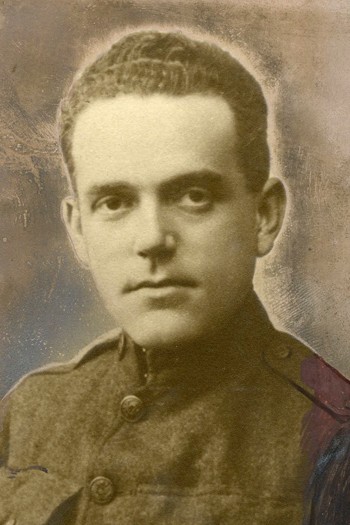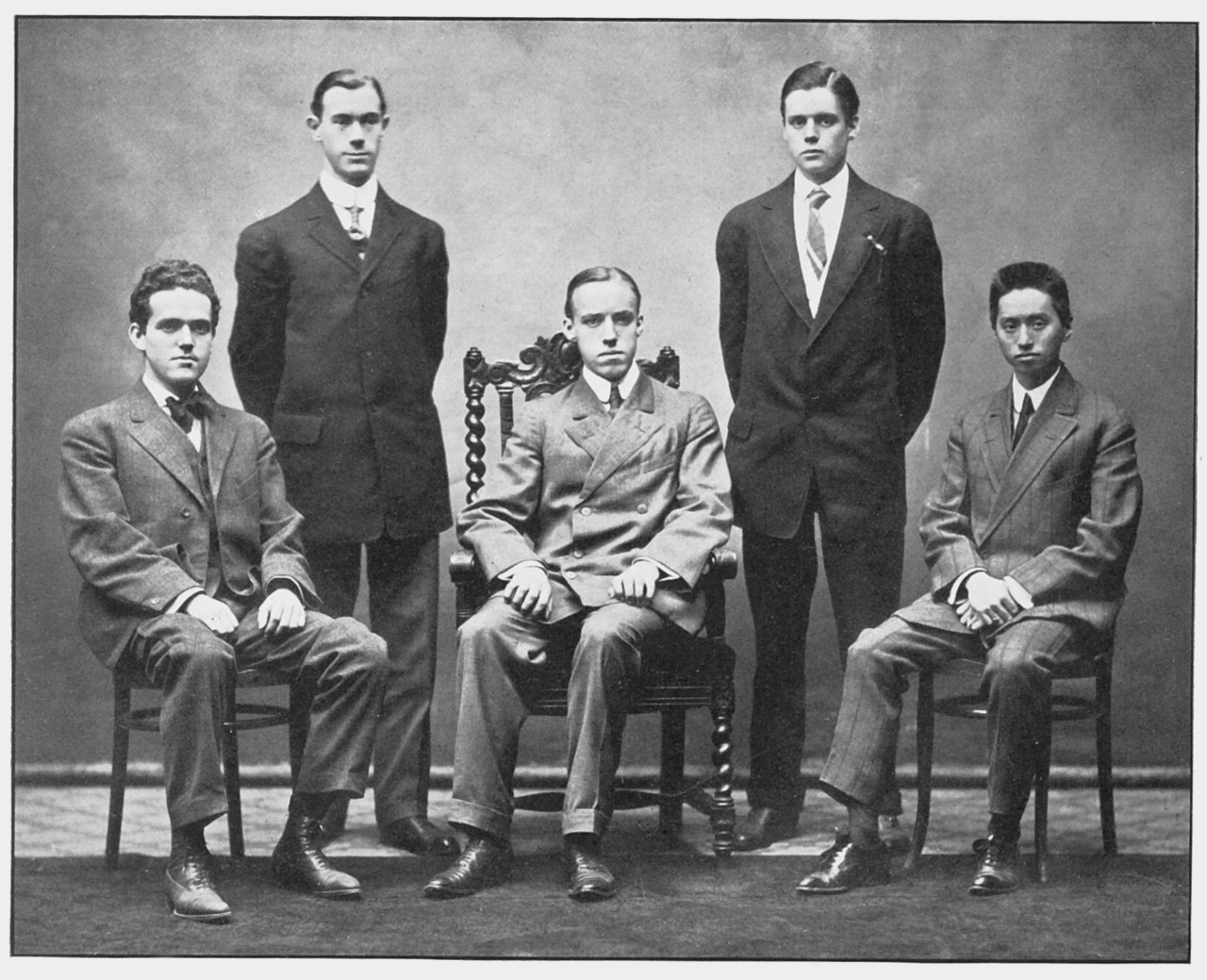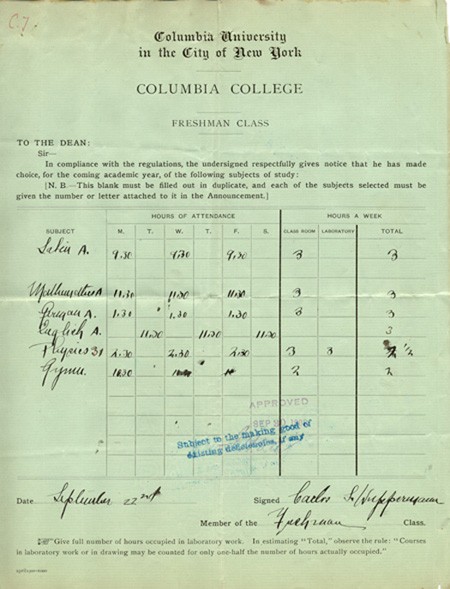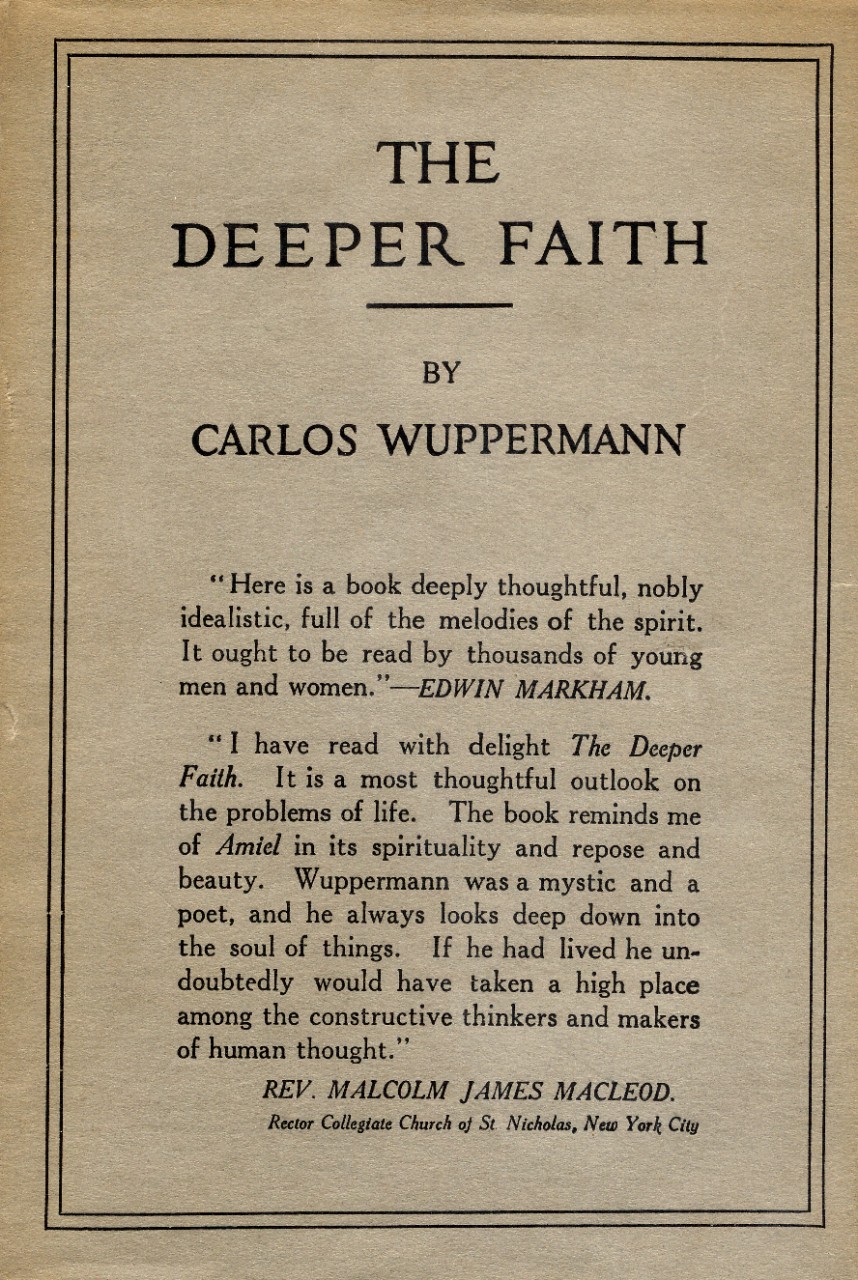Roll of Honor
Home | About | Campus Tour | Help Us
Carlos Domasso Siegert Wupperman
- School: Columbia College
- Class Year: 1907
- War: World War I
- Date of Death: April 15, 1919
Sergeant Carlos Domasso Siegert Wupperman, U.S. Army, died in the line of duty at Treves, Germany, on April 15, 1919.

Tributes
Tributes 1919 – 1924: Col. Arthur Mullin Wright, doctor. Commanding Officer Base Hospital No. 1, Bellevue Unit, Vichy, France: We were proud that Sergeant Wuppermann went to France as a member of our organization; we were proud of him when he accepted the call of greater service in the dangerous work of the Intelligence Department and we are proud of him in his death. It represents indeed a glorious sacrifice. Sgt. 1st Class Raymond Loder, opera singer, Base Hospital No. 1: Although we did not know each other long, I had considered him my very best friend from very early in our acquaintance. Certainly, he was the most congenial man I have ever known and this joined to a high regard for his gifts and a great admiration for the idealism of his character drew me very closely to him. Sgt. Eric Allan Dawson, Corps of Intelligence Police, Clermont-Ferrand: News of his death reached me while I was in Paris attached to the Peace Conference and where he would have been had he remained at Clermont. Our dear old landlady was heartbroken at the news. The shock forced her to remain in bed two days. Major Frederic Henrotin, Corps of Intelligence Police, Trier Germany: During the time he was with us here your son won the sympathy of all around and in him I am losing a faithful and loyal collaborator. His intelligence marked him out as especially suitable for the difficult work in which he was engaged, never complaining, always willing; his services were much appreciated by his superiors. Sgt. Horace Alphonse Fuld, Corps of Intelligence Police, Trier: While living, he was an inspiration to all of us, and gone – he becomes a glorious sacrifice…for our country. Sgt. Stuart Fox, actor, Corps of Intelligence Police, Trier: I always found his ideas as pure and true for there was about Carlos something more than just a patriot. He was a man of faith, and in his eyes the boys who gave their lives for the cause were martyrs too. Sgt. Richard C. Armistead, Corps of Intelligence Police, Trier: I hope that time softens the grief and pain of the mother’s heart, and that she may find consolation in knowing her boy was one of the finest, truest fellows who ever lived. Roderick Seidenberg, jailed Conscientious Objector at Fort Leavenworth: “A look at the papers and I found Carlos Wuppermann had died! It just completed my feelings of utter despondency. I haven’t been able to…collect myself enough to realize that Carlos is no more. I simply cannot realize it! Leonard Mudie, actor, Laughing Harry co-author: Dear old Carlos was one of the finest, cleanest; and one of the most lovable boys I have known. God must have wanted some sunshine in Heaven when he took him away from you. Earle Mitchell, Under Cover actor: I shall always remember Carl, for the kindly light in his eyes, and his big, generous smile – ingredients of his soul – which went far in the proof that man is made in the image and likeness of God. Dorothy Sprague, daughter-in-law of inventor Frank Julian Sprague: There are few men like Carlos. I do not believe that anyone could know him and not feel that his friendship was a privilege and a benefit. He was the most modest person on earth and one of the noblest – a really great character. I never expect to meet a greater. Reverend Harry Peirce Nichols, rector of Holy Trinity Church, Harlem: Boy, Poet, Linguist, Soldier; in all Christian, Comrade, Servant of his fellow. I followed him with growing affectionate interest and admiration; through the Sunday School, through Trinity School; Columbia University; the Phi Gamma Delta fraternity; as a writer of magazine articles, poems and dramas; himself actor as well as author – a career so alive with talent and sympathy. Henry W. Webber, attorney: I was very fond of Carlos. A great soul has passed over the mountain, a loving personality that one can never forget. Eva Vom Baur Hansl, former Barnard College student: His was indeed a rare spirit – his intense idealism made him somewhat a stranger in a materialistic world, but also a most refreshing and inspiriting person to know. There are too few such as he for the world to afford to lose one of them. Ralph Morgan, brother: The finest lad that ever lived.
- Valerie Yaros
Originally enlisting for overseas duty with the Bellevue Medical Corps, Sergeant Carlos Dámaso Siegert Wuppermann, Corps of Intelligence Police, G-2-B, United States Army, died in Trier (Trèves), Germany. That afternoon, April 15, 1919, he was to meet a C.I.P. colleague, fellow Columbia grad Horace Fuld (Class of 1909) to travel on assignment to Saarbrücken. Fuld left without him when he failed to show up at the G-2-B office. After graduating from Trinity School in 1903 at age 16, Wuppermann attended Columbia from the fall of 1903 to the spring of 1909, (with part of 1906-07 at the University of Leipzig), with coursework in English, German, Music and Philosophy. From a family of Episcopalian Republicans...his political affinity was Socialist. Wuppermann was Managing Editor of the Columbia Monthly literary magazine which operated out of the now-demolished West Hall, and a member of the small Peithologian Society which met in Earl Hall. He was in the Phi Gamma Delta Fraternity (Omega Chapter) along with Arthur Douglas Alexander (who died in 1919 six days after Carlos --see Douglas’ Columbia War Memorial entry), famed artist Rockwell Kent, and an elder brother Raphael Kühner Wuppermann, a veteran of numerous 1902-1906 Columbia Varsity Shows who, as actor "Ralph Morgan," would co-found the Screen Actors Guild in Hollywood in 1933. For a time, Carlos lived at Phi Gamma Delta fraternity house, which still stands at its former address of 604 W. 114th street. Other Columbia student friends and colleagues included poet-writers Joyce Kilmer (see Columbia War Memorial entry for Alfred Joyce Kilmer), Shaemas O’Sheel, and B. Russell Herts; radical writer Randolph Bourne; playwright/artist/teacher George W. Cronyn; actor/author Ralph Roeder, art curator Carl Zigrosser, stage and film director Edward Goodman, poet/scholar/art historian Rhys Carpenter, WWI conscientious objector Roderick Seidenberg, future Chinese Ambassador to the United States V.K. Wellington Koo, and Columbia English Instructor Bayard Boyesen. In June 1907, Wuppermann, Joyce Kilmer and George Cronyn were among the "Honorable Mention" recipients in a Columbia "Belles Lettres" contest for "Best Poem" won by Rhys Carpenter. After leaving Columbia without a diploma in 1909 (due to a deficiency in physical education credits), he acted in amateur productions of the Columbia University Graduate Dramatic Association, as well as with other amateur groups, and contributed work to "little magazines" like Moods, The Colonnade, The International (published by George Sylvester Viereck), and the Modern School (magazine of the school of New York's Francisco Ferrer Center, edited by Carl Zigrosser). One poetry volume, Quiet Places was published by Shaemas O’Sheel in 1911/12 and received numerous published positive reviews. Wuppermann’s career goal was to be a writer/playwright, but he found primary employment as a professional actor in productions like the Broadway hit Under Cover at the Cort Theatre (by Columbia grad Roi Cooper Megrue, Class of 1902), in which he replaced brother Ralph Morgan as “Monty Vaughn’ in 1915. In Under Cover, he used the stage name “Carliss Wupperman” and later used the stage and pen-name “Carlyle Morgan” under which he co-wrote an anti-war one-act play Laughing Harry. Other touring/road productions as an actor included A Full House with brother Frank Morgan, The Typhoon with Walker Whiteside, Cousin Eleanor with Henrietta Crosman and Stocks and Stockings with George Parsons. An avowed pacifist, on June 19, 1917, two weeks after the U.S. draft registration, he enlisted in a non-combatant position in the Bellevue Medical Corps, shipping out for France on one of the late Titanic's sister ships, S.S. Olympic on February 26, 1918. Wishing to be, as he expressed "of greater service" to the war effort, after months in his beloved Vichy, France with Base Hospital No. 1, Bellevue Unit, the multi-lingual Wuppermann requested and received a transfer to the Corps of Intelligence Police effective as of October 3, 1918. A month after the November 11, 1918 Armistice, suspending war hostilities, he was transferred from France to Germany with the United States Army of Occupation. In February 1919, after returning from leave in Nice, France, Wuppermann wrote the Columbia University Registrar from Trier, asking for his diploma, as he wished to apply to take a three months' course at the University in Paris. He reported to his mother: "I have written to the registrar of Columbia University, requesting my A.B. degree and stating that I thought a year and a half military service might be allowed to count for any delinquency in physical education they might still hold against me." On March 14, 1919, the Columbia decided to award his A.B. degree as of May 27, 1908. His mother was requested to file a new Application for Degree "no later than April 15" of 1919. Eerily, that was the day he was to die. He never learned that his A.B. degree was granted. His four-act drama, The Triumph of X played at New York’s now-demolished Comedy Theatre in August-September 1921 with Frank Morgan in the lead male role. A collection of Wuppermann's spiritual essays, The Deeper Faith (dedicated to beautiful Barnard College graduate, Jessie Isabelle Cochran, identified only by her initials) was posthumously published by G.P. Putnam’s Sons/Knickerbocker Press in early 1922. In The Deeper Faith, he asserted: It does not matter if good men perish. Goodness endures. Carlos Wuppermann is buried under a large white marble cross in the Hancox/Wuppermann family plot at Green-wood Cemetery in Brooklyn NY, lot 14447, Section 168. Frank Morgan, Ralph Morgan and other family members are buried in the plot as well. As the lettering on the marble cross has worn away, a new granite stone was added to the foot of Carlos Wuppermann's grave in early 2003.
- Valerie Yaros
 1908 Columbia Monthly staff. Carlos Wuppermann, seated at left.
1908 Columbia Monthly staff. Carlos Wuppermann, seated at left.
 Carlos Wuppermann's schedule while at Columbia. Courtesy of the Screen Actors Guild Archives
Carlos Wuppermann's schedule while at Columbia. Courtesy of the Screen Actors Guild Archives
 Courtesy the Screen Actors Guild Archives
Courtesy the Screen Actors Guild Archives
Is any of our information incorrect? You can submit corrections, additional photos, and/or tributes to uarchives@columbia.edu.
